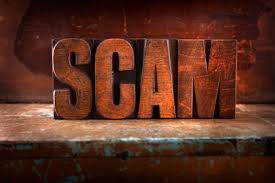Con Men, Criminals, and Compliance
 What does it take (or not take) to be a con artist and/or a white collar criminal? Do not kid yourself — white collar criminals can be “dangerous,” in that they usually suffer from significant personality disorders. Many are narcissists and sociopaths and are constantly engaging in manipulation, financial schemes, and inflicting harm to victims.
What does it take (or not take) to be a con artist and/or a white collar criminal? Do not kid yourself — white collar criminals can be “dangerous,” in that they usually suffer from significant personality disorders. Many are narcissists and sociopaths and are constantly engaging in manipulation, financial schemes, and inflicting harm to victims.
We all the know the legendary white collar scandals – Lay and Skilling at Enron; Bernie Ebbers at WorldCom; Jack Abramoff; Bernie Madoff. The list goes on and on with infamous criminals.
The term “Con Man” has been coined through the years to describe individuals who can convince an innocent person to invest in fraudulent schemes or manipulate people to trust the con artist.
Just like any issue in life, however, there are degrees and differences among the con artists or the criminals. Some are worse than others and it is easy to lump everyone together in the white collar crime bucket.
An employee who steals millions of dollars is far different from an employee who includes a personal expense of less than $100 on a reimbursement request (although some may argue otherwise). There are significant degrees of difference among thieves. I recognize that the true number of criminals working in a company is relatively small. It is important to consider the small number and the varying degree of misconduct to assess overall risk.
From a compliance perspective, however, this issue is important in understanding risk. An employee who engages in theft over the years while working at a company may have plenty of so-called explanations or even justifications, but in the end, their actions reflect their willingness to break the law, and violate the code of conduct. Often, the fraud and theft scheme is for the perpetrator’s material needs. I have never observed a “Robin Hood” who steals from the company to give to the poor (beyond themselves).
Many serious criminals are not susceptible to persuasion – no amount of training, communication, or promotion of corporate values of trust and integrity will convince the criminal to not engage in the misconduct. A narcissist and a sociopath will have no problem flouting the rules because they do not acknowledge that the rules apply to them; from their viewpoint, their needs transcend any of the law-abiding community.
When it comes down to it, a company needs to rely on its law-abiding employees to report misconduct. This is the best protection against criminal conduct. If reported, a company may be able to investigate and stop the conduct. In some cases, a vigilant reporting system may even deter a criminal from engaging in behavior.
A robust system to investigate complaints and possible misconduct is the best protection a company may have against fraudsters and other criminal activity. If the system works quickly and effectively, employees will trust the system, report misconduct, and monitor the results of their reports.
 A company that is committed to justice and making sure misdeeds are punished is likely to see a positive environment for reporting misconduct. Overall, efficient justice leads and promotes even greater reporting and justice.
A company that is committed to justice and making sure misdeeds are punished is likely to see a positive environment for reporting misconduct. Overall, efficient justice leads and promotes even greater reporting and justice.
Company investigators are not on a crusade. Criminals will be criminals no matter what the culture of the company may be. Criminals are focused on themselves, what they can get away with, and fulfilling their narcissistic or sociopathic needs. It is not a situation where companies create criminals; rather, companies may be able to deter or prevent criminals from engaging in misconduct by swift justice and creating an environment where law-abiding employees are committed to reporting misconduct.
















All great points. The research also shows that more than half of internal fraudsters are first time offenders. All the more reason to provide the honest ones with fraud awareness training–to better enable them to report wrongdoing